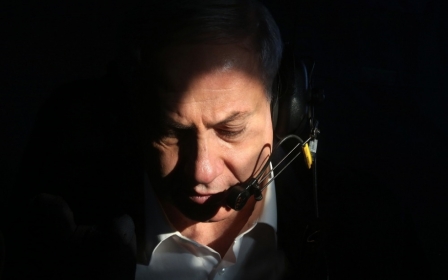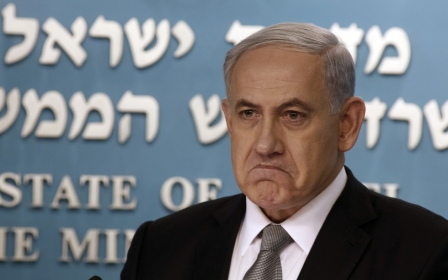The revolution of knitted skullcaps

After the votes were counted in Israel’s 2009 general elections, it appeared that the political representation of the religious-nationalist community was coming to an end. The Jewish Home party, heir to the National Religious party represented in all of Israel's parliaments from its foundation, scored only three seats, compared with the 10 to 12 it used to get in the late 1970s.
The religious-nationalists who always tried to combine a total commitment to the Zionist movement with an adherence to Jewish traditions - contrary to the ultra-orthodox Jews who rejected the Zionist idea - ended up effectively merging into Israel’s secular political parties, mostly into the Likud party, which gave an ever-larger space to the settlers' community, where this national-religious sector is a majority.
But in late 2012 came Naftali Bennet, a former officer in a commando unit who made a fortune in the tech industry, took over the Jewish Home party in a storm, and the rest is history - including his appointments last year as economy minister and minister for religious services, both of which posts he still holds. The party took 12 seats in the 2013 elections and only a surprise will prevent it from getting at least 15 seats in the elections scheduled for next March. It is certainly the most "trendy" party at present.
Some 44 candidates are running in the party's primaries elections, more than in any other party in Israel, including Likud and Labor. Two of the candidates are not even practicing Jews (one Muslim, the other a Druze) which was, until recently, an uncompromising demand of candidates who wanted to run in the National Religious party. Activists in the Jewish Home party say they hope Bennet will be become prime minister. If not in the coming election then in the next.
The fact that a representative of the "knitted skullcaps" (nicknamed after their typical head-cover, in contrast with the large fur-made yarmulkes typical of ultra-orthodox Jews) aspires to this post is nothing less than a political and sociological revolution.
Even in its highest days, this group in society was always marginal, a side story to the mainstream Zionist project. True, the "knitted skullcaps" sector was the backbone of the settlers' movement, but they let the secular Likud party take the political lead at the national level. Now, with Bennet in command, they want to move from the back seat to the steering wheel.
Much of this change is due to Bennet himself. With a tiny skull cap on the top of his shaved head, his is far from the usual image of a religious leader that deters many secular Israelis, even within the right wing. He is also a living example of a successful entrepreneur in the high-tech industry after selling the company he founded, Cyota, for $145mn, an achievement much appreciated in a country that prides itself on being called "a start-up nation".
As with many in his sector, Bennet served as an officer in a commando unit in the army. This military career helps him to strengthen his image as a true patriot, and also allows him to adopt a military-like, straight-forward manner of talking. Bennet goes to synagogue, but in contrast to previous leaders of his party he does not consult with rabbis before taking a political decision. He is certainly the least religious leader this religious party has known.
Much has been written about the importance played on the sanctity given to settling Eretz Israel (Palestine) with Jews after the 1967 war. Rabbis and activists in the religious-national community portrayed it as a fulfillment of a biblical commandment. The whole settlement movement would not have been possible without these conceptions.
Bennet firmly believes that Eretz Israel belongs to the Jewish people by divine right and to it alone, and therefore the very idea of an independent Palestinian state on any part of this holy land is unacceptable. In this respect, he follows the path of earlier leaders.
The difference is that Bennet does not hide his views; he does not ask to be understood by the mainly leftist elites. He has been quoted as saying: "I killed many Arabs and there is no problem with that", and that Palestinians are not more than "shrapnel in the butt". "Stop apologising" is his current campaign slogan. This is the opposite of the previous slogans of the settler camp, which talked about "settling in the hearts" of everyday Israelis.
During Operation Protective Edge against Gaza this summer Bennet, positioned himself in opposition not only to Prime Minister Benjamin Netanyahu but also to the sacrosanct army, both guilty - in his eyes - for not being daring enough, for not going all the way to crush Hamas and occupy the whole Gaza Strip.
The fact that most Israelis regard the results of the conflict with Hamas as a draw, if not as a full-blown failure, won him the appreciation of many in the right-wing camp, not necessarily religious camp-followers only.
Dani Dayan, former chairman of the Yesha council (which represents the settlements) and a secular candidate in the Jewish Home primaries, says that this approach wins Bennet many votes among young Israelis coming out of military service. According to polls, his party comes first among voters aged under 25 years of age.
Most Israelis were born after the 1967 war, explains Dayan, so they do not know an Israel with the West Bank. The same goes for more than a million immigrants from the ex-Soviet Union who began coming to Israel in the 1990s. It is harder to convince them that Israel should give up the West Bank than to convince them to annex these areas, adds Dayan.
Yet there is another element that perhaps attracts Israeli voters to this neo-religious party. In the past 47 years, the settlers and right-wing parties behind them were busy trying to change the reality on the ground so that establishment of viable Palestinian state would be impossible. Now, after settling more than 350,000 Israelis in the West Bank, they feel they have fulfilled this task and are ready to move to the next step: setting an agenda of their own for the future of Israel and its conflict with the Palestinians.
There is still no coherent and common proposal set by this sector. Dayan, for example, offers to abolish military rule over the West Bank, to dismantle the separation wall and the checkpoints, to allow Palestinians full civil rights, but not to grant them a right to vote for parliament. Bennet offers to annex area C - some 60 percent of the West Bank - and giving full political rights to the 100,000 Palestinians living in them. Others, like (Likud member) President Rueven Rivlin, offer to give these rights to all Palestinians in the West Bank, turning Israel practically into a bi-national state.
To a certain extent, the political camp around Jewish Home is buzzing more with ideas than leaders such as the Labor’s Yitzhak Hertzog and Hatnuah party's Tzipi Livni, still stuck with notion of never-ending negotiations with the Palestinians - which is leading nowhere and ignores the changed reality on the ground. Many Israelis feel that Bennet is "telling them the truth", while Hertzog and Livni are selling them a bunch of lies.
Yet even Dayan admits that Bennet and the political camp he represents are not ready to take on the Israeli leadership - and not only because it is impossible to form a government with 15 or even 17 seats in parliament, especially if you are coming from the extreme-right. But because Bennet is not yet able to formulate an annexation proposal that will be accepted by most Israelis.
This is maybe the biggest Israeli paradox. Israel is not able to reach a settlement in which it gives up the West Bank and Gaza, and at the same time is not ready to "swallow" them. Bennet's success may only emphasise the dead-end in which Israel finds itself.
Stay informed with MEE's newsletters
Sign up to get the latest alerts, insights and analysis, starting with Turkey Unpacked
Middle East Eye delivers independent and unrivalled coverage and analysis of the Middle East, North Africa and beyond. To learn more about republishing this content and the associated fees, please fill out this form. More about MEE can be found here.




